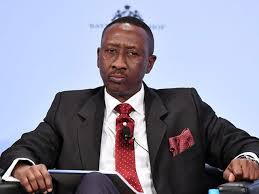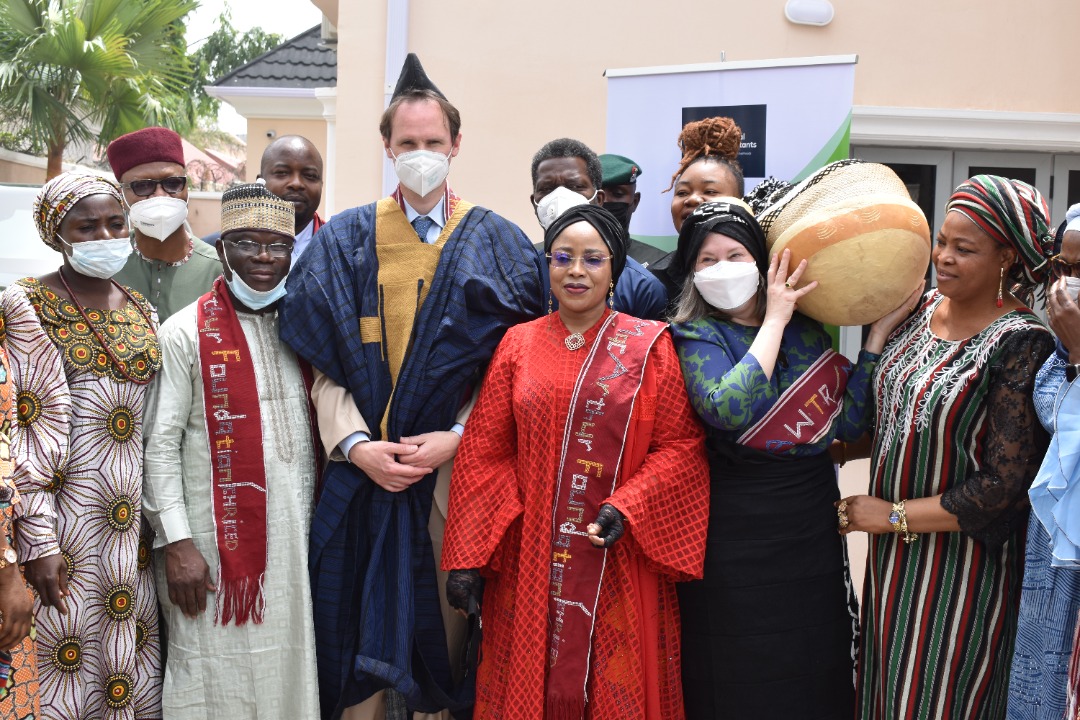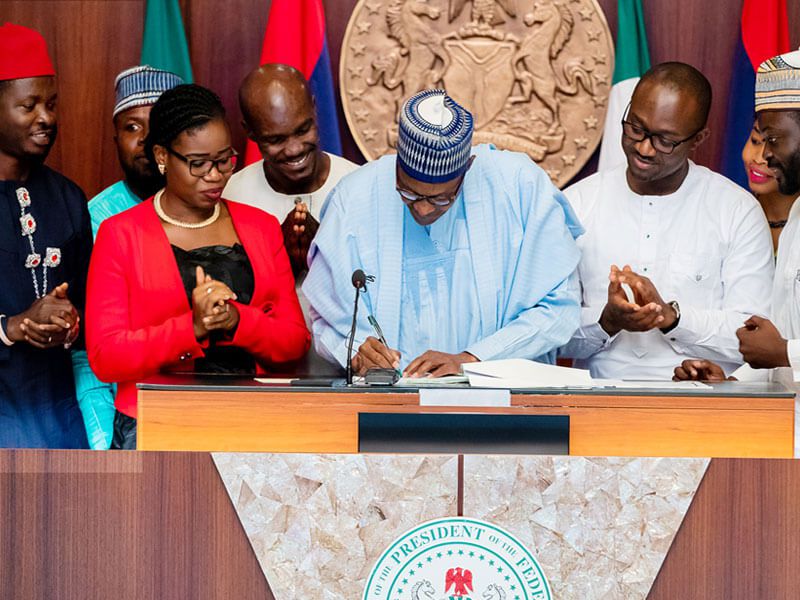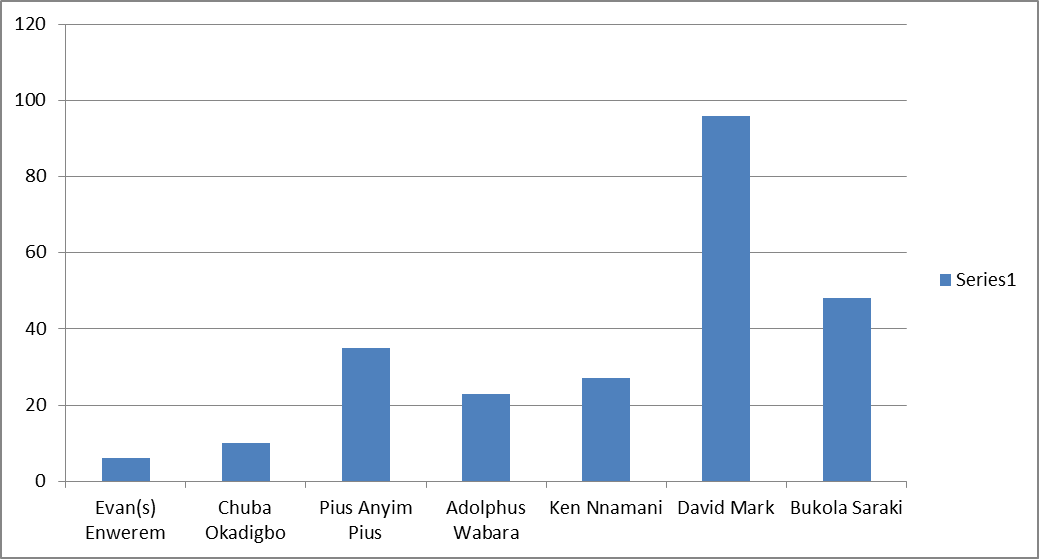Much ado about National Security Adviser

By Eric Teniola
General Ibrahim Badamosi Babangida, GCFR, whose tenure was between August 27, 1985 to August 26, 1993, was the first to introduce the office of the National Security Adviser to this country. That was in January 1990 when he made my friend, the 7th Inspector General of Police, Alhaji Mohammed Gambo Jimeta as the first National Security Adviser. The last time I visited that office in Abuja, the penciled portraits of past and present National Security Advisers were displayed on the stairs leading to the office of the National Security Adviser. In April 1980, President Shehu Usman Aliyu Shagari, GCFR, (25 February, 1925 -28 December, 2018) appointed Dr. Bukar Shuaib National Adviser on National Security, who was later succeeded in 1983 by Professor Shehu Ahmad Said Galadanchi, now General Administrator of the Abuja National mosque. These two men were special advisers and not National Security Advisers.
In January 1990, General Babangida replaced General Sani Abacha (20 September, 1943- 8 June, 1998) with General Salihu Ibrahim (1935-2018) as Chief of Army Staff. He also replaced Alhaji Muhammadu Gambo Jimeta as Inspector General of Police with Alhaji Aliyu Attah (82).
A few months after dethroning Major General Muhammadu Buhari, GCFR, as head of State, General Babangida disbanded the Nigerian Security Organisation. The organization then was headed by the third and last Director General, Ambassador Muhammed Lawan Rafindadi (1934-2007). The organization persecuted many people including me during the tenure of Major General Buhari (1984-1985). So on June 5 1986, General Babangida, GCFR, established effectively three organisations: THE DEFENCE INTELLIGENCE AGENCY, THE NATIONAL INTELLIGENCE AGENCY AND THE STATE SECURITY SERVICE. In establishing the three bodies, General Babangida charged that the “DEFENCE INTELLIGENCE AGENCY with the responsibility for the prevention and detection of crime of a military nature against the security of Nigeria; the protection and preservation of all military classified matters concerning the security of Nigeria, both within and outside Nigeria; such other responsibilities affecting defence intelligence of a military nature, both within and outside Nigeria, as the President, or the Chief of Defence Staff, as the case may be, may deem necessary, THE NATIONAL INTELLIGENCE AGENCY shall be charged with the responsibility for the general maintenance of the security of Nigeria outside, concerning matters that are not related to military issues; and such other responsibilities affecting national intelligence outside Nigeria as the National Defence Councilor the President, as the case may deem necessary. The STATE SECURITY SERVICE shall be charged with responsibility for the prevention and detection within Nigeria of any crime against the internal security of Nigeria, the protection and preservation of all non-military classified matters concerning internal security of Nigeria; and such other responsibilities affecting internal security within Nigeria as the National Assembly or the President, as the case may be, may deem necessary”.
So when General Babangida, GCFR, appointed Alhaji Mohammed Gambo Jimeta as National Security Adviser, the expectation then was that as National Security Adviser he would be in charge on all matters concerning the Defence of the sovereignty and territorial integrity of Nigeria. But that was not to be. General Babangida placed that job under the coordinating committee of Defence Intelligence of which he made Major General Aliyu Gusau as the head.
I asked Alhaji Gambo Jimeta recently at his Maitama residence in Abuja what was his schedule in 1990. He said” when Babangida removed me as the IG, he still needed my services as a friend. So, he made me NSA with no schedule and no office. So as NSA, I was operating from my Victoria Island home with no staff. I then contacted foreign embassies who have National Security Advisers to explain to me the schedule of National Security Adviser. It was General Babangida, GCFR, who helped by providing accommodation for us.” He did his best for our take off at that time.” In all but name, Lt-General Aliyu Mohammed was National Security Adviser between 1990 and 1993.
In August 1993, General Babangida formally named another National Security Adviser in the person of Alhaji Aliyu Ismaila Gwazo from Gwazo village, seventy kilometers from Kano. He was the pioneer Director General of the State Security Service. His deputy then was Lt-Col. Ajibola Kunle Togun. He later became a Brigadier General He is from Oke-Ogun in Oyo state. General Babangida then appointed Alhaji Gambo Jimeta as Chairman of the directorate of MAMSER —Mass Mobilisation for Self Reliance and Economic Recovery. It was Alhaji Gwazo that served as NSA to Chief Ernest Adegunle Oladeinde Shonekan (83), GCFR, from August 26 1993 to November 17 1993. He also served General Sanni Abacha, GCFR, from November 17 1993 to June 8 1998.
When General Abdusalam Abubakar, GCFR, came to power on June 9 1998, he appointed the Chairman and Managing Director of Atoto Press in Ilorin, Major General Abdullahi Mohammed (80) as National Security Adviser. Major General Mohammed was the military governor of Benue-Plateau from July 1975 to February 1976 during the military regime of General Murtala Muhammed. He was also the first Director-General of the National Security Organisation (NSO). He lives quietly now in Ilorin. He had his military service between 1958-1979.
In 1999 when President Olusegun Obasanjo, GCFR, asked the late Secretary to the Government of the Federation, Chief Ufot Ekaette to prepare for his approval, the schedule of certain public officers including Ministers and their portfolios, there was no schedule or portfolio assigned to the National Security adviser. I asked Dr. Goke Adegoroye last week, who assisted Chief Ekaette in drafting the memo for the schedule of Ministers and their portfolios why nothing was assigned to the NSA, he said the expectation was that President Obasanjo being a retired Military officer would assign responsibilities for the National Security Adviser.
“Don’t forget, Eric that it was purely a Military affair, both the President and the NSA were from the Military and the peculiar circumstances of the time, transiting from military to civilian democratic administration demanded special considerations. Since every power flows from the President, it should be the duty of the President to assign specific responsibilities to the NSA as he deems fit”.
In government circles till today, the National Security Adviser is classified as “senior official in the cabinet of the President of Nigeria who serves as the chief adviser to the President on national security issues. The National Security Adviser participates in the meetings of the National Security Council, and other deliberations on security and intelligence matters.
The National Security Adviser manages national security on behalf of the President through the National Security Council, the Joint Intelligence Board and the Intelligence Community Committee. The National Security Advisor is the principal officer of the National Security Council and advises the President on national security issues.
Appointment to the office does not require confirmation from the Nigerian Senate, and the holder serves at the pleasure of the president. The functions of the National Security Adviser varies from administration to administration; and depends, not only on the qualities of the person appointed to the position, but also on the style and management philosophy of the incumbent President”.
At the takeoff of the democratic system in May 1999, President Olusegun Obasanjo, GCFR, appointed Lt-General Aliyu Mohammed Gusau as National Security Adviser. In the intelligence community, General Gusau is feared. In 1993, he was appointed Chief of Army Staff. He has all the contacts, even globally. He resigned in May 2006 to enter the Presidential race. President Umaru Yar’adua, GCFR, then appointed Major General Abdullahi Sarki Mukhtar (70) as National Security Adviser from Kano state in June 2007 and served till 8 March 2010. Major General Mukhtar was former military Governor of Kaduna and Katsina states. After President Yar’adua’s death, President Goodluck Jonathan, GCFR, then reappointed Lt-General Aliyu Mohammed Gusau as National Security Adviser thereafter. In March 2010, General Mohammed Gusau later resigned and joined the presidential race again. He handed over to his deputy, Colonel Kayode Are of Course 12 of the Nigerian Defence Academy Regular Course. Colonel Are is from Abeokuta in Ogun state. Colonel Kayode Are was appointed National Security Adviser on September 18, 2010.
Frightened by the October 1, 2010 bomblast at the Eagle Square, President Jonathan, GCFR, sacked Colonel Are on October 4, 2010 and appointed General Owoye Andrew Azazi (1952-2012) as National Security Adviser on October 4, 2010. General Azazi was also of course 12 of the Nigerian Defence Academy Regular Course. General Azazi was former Chief of Defence Staff and Chief of Army Staff.
On April 27, 2012 at Asaba in Delta state, General Azazi blamed the Boko Haram insurgency on the internal wrangling within the ruling PDP. It was a joke carried too far. Two months later General Azazi was sacked.
On June 22, 2012, the same President Jonathan appointed Colonel Sabo Dasuki (64) (rtd.) as National Security Adviser. Colonel Sambo Dasuki was also of Course 12 of the Nigerian Defence Academy Regular Course.
The former Chief of Naval Staff, Admiral (rtd.) Ganiyu Tunde Adegboyega Adekeye (67) from Offa in Kwara state was also a student of Course 12. Colonel Dasuki served as National Security Adviser between June 22, 2012 to July 2015. Colonel Dasuki (rtd.) is the first son of late Sultan of Sokoto, Alhaji Ibrahim Dasuki (1923-2006), who reigned between 1988 and 1996.
When Colonel Sabo Dasuki was born on December 5, 1954, his dad, who was then the Chief Private Secretary to the late Premier of Northern Nigeria, Alhaji Ahmadu Bello, was not in the country. He was in Saudi Arabia for the Hajj. He therefore delegated his then deputy, Alhaji Gidado Idris to go to the hospital in Kaduna and be present at the delivery of the new baby. Alhaji Gidado Idris later became Secretary to the Government of the Federation. Colonel Dasuki has deep knowledge of many issues and has many friends across the country irrespective of tribe and religion. Widely travelled, Colonel Dasuki is of the royal family in Sokoto. Because of his detention, he was not present at the burial of his late father, Alhaji Ibrahim Dasuki, GCON and at the funeral also of Alhaji Gidado Idris, GCON. Colonel Dasuki was recently released on bail.

President Buhari
The present National Security Adviser, Major General (rtd.) Mohammed Babagana Monguno was appointed by President Muhammadu Buhari, GCFR, on July 13 2015. General Monguno was Chief of Nigeria’s Defence Intelligence Agency from July 2009 to September 2011. General Monguno has spent most of his life in Lagos right from his days at Kings College.
His childhood friend is Prince Dapo Oyewunmi, a lawyer and graduate of Obafemi Awolowo University in Ile-Ife, who is the son of Soun of Ogbomosho, Oba Oladunni Oyewunmi Ajagungbade III. General Monguno is a lucky man. He is a member of Course 21 who enlisted into the Nigeria Defence Academy, Kaduna on January 3, 1977. Many members of Course 21 died on September 26, 1992, when their Hercules C-130 plane of the Nigerian Air force plunged into the Ejigbo Canal in Lagos. At 1730hours on that day
a Nigerian Air Force Military Transport Plane, a Lockheed C-130H-LM HERCULES (L-82), production number 4624, registration number NAF 911, piloted by Wing Commanders J.P. Alabesunu and A.S. Mamadi crashed enroute to Kaduna. Some reports claim there were 163 on board. Others have said there were actually 174 passengers on the ill-fated flight, including some unidentified civilians, personnel of the Nigerian Air Force Military School, Jos and other military personnel who hitched a ride.
Those who died in the ill-fated crash were members of Courses 19, 20 and 21 of the NDA.
LIST A: ARMY:-Lt Colonels—-1. S.A. Onipede N/2888 2. A.J. Ibiyeye N/33300 3. J.A. Agber N/2712 4. B.A. Ibanga N/3315 5. J.O. Okafor N/2803 6. G.O. Ikoli N/5402 7. S.K. Aladesuyi N/3259.
LIST B: ARMY: – Majors
- C.D. Nwambuowo N/5587 2. E. Ezenwa N/3039 3. M.H. Leramoh N/2889 4. S.O. Yawus N/5956 5. S.S. Agada N/5975 6. E.O. Amechi-Okoro N/5861 7. O.O. Mba N/5945 8. E.J. Onwe N/3196 9. S. Bature N/6085 10. T. Zubair N/5465 11. F.U. Bassey N/6018 12. O.G. Akise N/3207 13. J. Shija N/3217 14. A.B. Famowei N/5936 15. A.A. Itodo N/6043 16. J.O. Okobo N/6047 17. K.A. Opgwu N/6058 18. M.S. Dambata N/6063 19. P.S. Stephen N/3389 20. S.O. Amaga N/6095 21. C.U.M. La’ah N/6092 22. I.A. Abolade N/6102 23. W. Adaa N/6112 24. E.A. Ushibe N/6207 25. J. Ugo N/3356 26. S. Abubakar N/3459 27. G. Josiah N/4362 28. Y. Aliyu N/3471 29. G. Ismaila N/3474 30. M.I. Ukeh N/3191 31. S.A. Jibunoh N/6173 32. I.U. Odache N/3482 33. I.E. Mauzu N/6181 34. P.O. Bamidele N/6185 35. I.D. Nock N/6187 36. D.S. Oyelola N/6186 37. L. Nyanayo N/6192 38. N. Obie N/6195 39. R.N. Nwankwo N/6197 40. C.T. Akpe N/6208 41. R. Okeowo N/6291 42. R.A. Olufe N/6292 43. E. Egoro N/3423 44. A.G. Jegede N/3443 45. A.H. Dombe N/3477 46. P. Yaro N/3488 47. A.Y. Abbas N/4221 48. C.O. Egharevba N/4222 49. F. Ogbebor N/5460 50. B.A. Anebi N/5461 51. G.O. Oyefi N/5467 52. I.K. Nwuke N/5470 53. V.S. Kure N/5483 54. J.A. Tokula N/5484 55. T. Abina N/5486 56. B. Kadiri N/5489 57. C. Mungu N/5502 58. A.N. Ebiringa N/5506 59. O.A. Ogunaike N/6032 60. B.B. Sadiq N/4028 61. S.O Gbenro N/4646 62. T.I. Adahada N/4747 63. C.E. Ogben N/5102 64. O. Babalola N/5115 65. E.W. Ekanem N/5474 66. C.T. Arowololu N/3216 67. M.S.Ogbeha 68. I.J.Raiya 69. D.O.Okoroji 70. M.A.Agoyi 71. V.U.Mukoro 72. A.E.Mshelia 73. J.A.Audu 74. S.A.Oisamoye 75. A. Bala 76. M.A.D.Badamasi 77. E. Ukagha 78. K.E.Osula 79. N.A.Kajero 80. B. Daranijo 81. M.O.Ajibola 82. U.A.M.Balami 83. S. Omakwu 84. A.O.Obiora 85. A.A.Kawonta 86. C. Otti 87. O.O.Olusanya 88. O.J.Mbaka 89. P. Iyayi 90. T.O.Ogunjobi 91. G.N.Nze 92. H. Onwuegbunam 93. M.A. Pindar 95. O. Adebayo 96. B.O. Potsha. LIST C: ARMY:- SGT—-1. M. Bahagoo. LIST D: ARMY:- CIVILIAN STAFF—-1. O.B. Oshoodi – MOD 2. M.A. Abu (Mrs) – MOD 3. A. Okpe – Reporter.
LIST E: AIR FORCE—1. Wg. Comdr. J.P. Alabesunu 2. Wg. Comdr. A.S. Mamadi 3. Sgn. Ldr. J.A. Adeiza 4. Flt. Lt. S.O. Adamu 5. WO. M.J. Wakala 6. P.S. Tarfa Saidu 7. WO. M.J. Datong 8. Sgt. A. Soyemi 9. Sgn. Ldr. Okon Okon Effiong 10. ,, John Husainu Tela 11. ,, K. Odubanjo 12. ,, F.O. Akede 13. ,, Habu Saidu 14. A. Duson 15. T.A. Clement 16. R.O. Yusuf 17. S.O. Oyerinde 18. N.O. Alege 19. M.T. Njidda 20. J.K. Osho 21. E.O. Ikwue 22. M.M. Gumel 23. A.A. Ndule 24. E.J. Ekpong 25. A.O. Atteh 26. O.Jaja (VideoCameraman). LIST F: NAVY—-1. Lt. Cdr. E. Obelen 2. ,, K.A. Fauka Bello 3. ,, S.O. Odusola 4. ,, O. Shiejir 5. ,, E.J. Gabriel 6. ,, A.O. Ojekunle 7. ,, K.O. Igwara 8. ,, A.O.G. Aboruwa 9. ,, S. Lasisi 10. A.A. Amaino 11. E.N. Okafor 12. T. Awoniyi 13. P. Asoro 14. P.N. Amangbo 15. O.O. Onabolu 16. J.O. Omokhuale 17. C.O. Ochigbono.
They were members of Command and Staff College, Jaji near Kaduna. They were in Lagos on Naval tour as part of the senior division Course. General Monguno is the nephew of Shettima Ali Monguno, a Federal Minister during the first Republic, whom I met when he was a member of the Constituent Assembly between 1977 and 1979. For General Monguno to be alive today is by the grace of God.
General Monguno also served as Commander, Guards Brigade, Deputy Commandant, National Defence College, and Chief of Defence Intelligence. Prior to his retirement from the Nigerian army he was considered for Chief of Army Staff position.
General Monguno voluntarily retired from the Nigerian Army in September 2013. It was around that time that former President Goodluck Jonathan appointed Major General Kenneth Minimah (60) (flying General) of Course 25 as the Chief of Army Staff. The present Chief of Army Staff, Lt-General Tukur Yusuf Buratai is of Course 29 while the former Chief of Army Staff, General Onyeabo Ihejerika was of Course 25, General Monuguno’s colleagues of Course 21 included the former Chief of Defence Staff, Air Chief Marshal Alex Sabundu Badeh (November 7, 1957 – December 18, 2018).
The question is what is so special about the job of National Security Adviser that both the Police and the military have monopolised the appointment. What is wrong in a civilian becoming the National Security Adviser? In our statue there is nothing in it that indicates that the National Security Adviser is the boss of the Service chiefs or that he must be a retired military officer or must have a military background.
The National Security Adviser in Canada is a woman—Greta Bossenmaier. Canada’s Prime Minister Justin Trudeau raided Canada’s secretive cybersy on May 7, 2017 to pick her. Even in France, a woman is also the NSA, Claire Landais was appointed February 28, 2017. In France they call the office, Secretariat General for National Defence and Security, founded in 1906.
Sometimes ago I read that in Britain “The NSA is secretary to the National Security Council which is chaired by the Prime Minister and head of National Security and Intelligence (National Security Secretariat) which is part of the Cabinet Office. The NSA will also advise Secretaries of State and other government ministers on issues of national security when necessary. The NSA is the Senior Responsible Officer for the Conflict, Stability and Security Fund, with a budget of over 1billion pounds.
The first National Security Adviser (NSA) of the United Kingdom was Sir Peter Ricketts, who was previously Permanent Secretary of the Foreign and Commonwealth Office and Chairman of the Joint Intelligence Committee. He handed over to Sir Kim Darroch in January 2012. On 7 July 2015, it was announced that Sir Mark Lyall Grant would replace Darroch as National Security Adviser in early September 2015. Mark Sedwill assumed the role in April 2017”. The same Sir Darroch is the one involved recently with President Donald trump in diplomatic row as Britain’s ambassador to the United States.
On India, the National Security Advisor (NSA) is tasked with regularly advising the Prime Minister on all matters relating to internal and external threats to the country, and oversees strategic issues. The NSA of India also serves as the Prime Minister’s Special Interlocutor on border issues with China, and frequently accompanies the Prime Minister on Foreign State visits. The following have served as National Security Advisors in India. They are Brajesh Mishra (November 1998-May 2004), J.N. Dixit (May 2004-January 2005), M.K. Narayanan (January 2005- January 2010), Shivshankar Menon (January 2010-May 2014) and Ajit Doval (May 2014, incumbent).They are all civil servants or diplomats.
Among the National Security Advisers in USA only seven were Generals. Since 1953 the National Security Advisers are Robert Cutler (March 23, 1953-April 2, 1955), Dillon Anderson (April 2, 1955-September 1, 1956), William Harding Jackson (September 1, 1956-January 7, 1957), Robert Cutler (January 7, 1957-June 24, 1958), Gordon Gray(June 24, 1958-January 13, 1961), McGeorge Bundy(January 20, 1961-February 28, 1966),Walt Rostow (April 1, 1966-January20,1969), Henry Kissinger(January 20, 1969-November 3, 1975), Brent Scowcroft (November 3, 1975-January 20, 1977), Zbigniew Brzezinski(January 20, 1977-January 20, 1981), Richard V. Allen (January 21, 1981-January 4, 1982), William P. Clark, Jr. ( January 4, 1982-October 17, 1983) ,Robert McFarlane (October 17, 1983-December 4, 1985), Admiral John Poindexter (December 4, 1985-November 25, 1986),Frank Carlucci (December 2, 1986-November 23, 1987, Colin Powell (November 23, 1987-January 20, 1989), Brent Scowcroft (January 20, 1989-January 20, 1993), Anthony Lake (January 20, 1993-March 14, 1997), Sandy Berger (March 14, 1997-January 20, 2001), Condoleezza Rice (January 22, 2001-January 25, 2005), Stephen Hadley(January 26, 2005-January 20, 2009), James Jones (January 20, 2009-October 8, 2010) ,Tom Donilon (October 8, 2010-July 1, 2013), Susan Rice (July 1, 2013-January 20, 2017)H. R. McMaster (February 20, 2017-April 9, 2018), John R. Bolton (April 9, 2018- September 18, 2019) and Robert O’Brien (September 18, 2018 till date)
In Nigeria the National Security Adviser supervises the activities of the Security Agencies, like DSS, NIA, DIA, NPF, NA, NAF, NN and to a large extent even the quasi Agencies, like Civil Defense, NDLEA, The Fire Service Nigeria Customs Service and Nigerian Immigration Service and EFCC but the last six are not too attached to the ONSA, like the first Seven Agencies. The first group is grouped in what is called The Intelligence community committee (ICC), and this group meets, weekly at ONSA, to review all the security situation of the Country and challenges, and try to proffer solutions. It is normally chaired by the NSA, or the most senior person, among them, in his absence. It is however, instructive, to know that, these Agencies, are all independent, they have their heads, and have their budgets, separate from ONSA, and are all Sevice Chiefs, who have access to the President, directly, without going through the NSA, if the need arises, but report all their activities, almost on daily basis to the NSA. The second group, is kind of second class, in terms of access, to either, the President or NSA, as most of them are controlled directly by Ministers. They however attend, the fortnightly meetings at ONSA, called JOINT INTELLIGENCE BOARD (JIB). The JIB, is an enlarged security committee, and many Agencies, parastatal and even some Perm Secs and Ministers attend, from time to time, depending on the matters to be discussed. Normally ONSA, sends invitations sometimes. The Office of the Perm Sec. Special Services act as secretary, of these meetings. Beside these major activities ONSA, also has a lot of other departments directly working under it, like the Office of Counter Terrorism, Office of Rehabilitation and Reorientation. International Department, Issuance of end user licenses, for the importation of all arms, explosives, military and paramilitary Equipment and all security assets, including bullet proof vehicles. This a summary of the functions of ONSA. The larger JIB also consist of NEMA, ICPC, NPA, FAAN, NIMASA and the rest. The first group attend both meetings and other Ad Hoc meetings.
The functions of the National Security Adviser varies from administration to administration; and depends, not only on the qualities of the person appointed to the position, but also on the style and management philosophy of the incumbent President.
There is no doubt that a career in the military or indeed any of the intelligence agencies is good consideration for appointment as NSA.
However, unlike in Nigeria where all appointees to the position since 1990 have not just come from the military but Army background, those appointed to the post of National Security Adviser across the globe have come from diverse backgrounds, especially in the United States, United Kingdom and India. This is a pointer to the fact that what the position requires are not necessarily military or combatant skills. Managerial and some peculiar skills, especially the ability to harness and exercise due diligence and respect in treating briefs from every member of the intelligence community and to respond to their needs with equal attention appear to be the non-disputable requirements of the post. In this regard, for an appointee into the position of NSA, a career background in the military or any of the bodies in the intelligence community could be a burden in terms of getting the other members of the Community to see fairness and objectivity in the way their agencies are treated as well as the level of importance attached to their intelligence briefs and other submissions.



